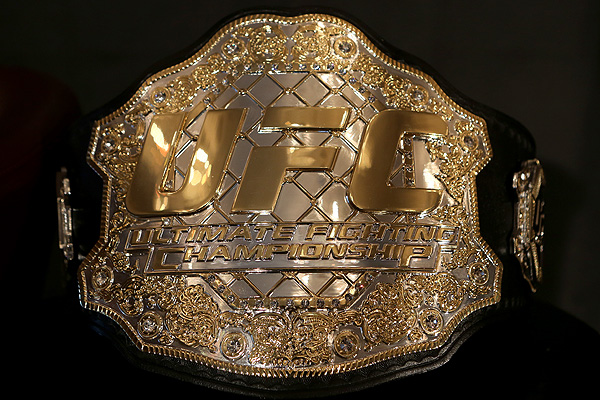Now that the world has had time to digest the fact that three world titles changed hands at UFC 217 and the return of Georges St-Pierre finally happened, the time is now to discuss the proverbial elephant in the room: the immediate rematch.
The idea is simple. A reigning champion loses his or her belt and feels that it is warranted that they receive another shot to regain the title. The problem is, where does the line in the sand get drawn? What if a champion had never defended their belt, therefore not warranting an immediate rematch, but they lost in a close fight? What if a champion had defended their belt multiple times, but lost the title in a very decisive manner? Should immediate rematches be the norm?
Recently dethroned UFC bantamweight titleholder Cody Garbrandt lost his championship without ever making a successful title defense. T.J. Dillashaw scored the big TKO finish in the second round to put away the Team Alpha Male fighter without any controversy. Garbrandt should therefore have to fight at least one top-three opponent and defeat that opponent — impressively and with relative ease — to earn another shot at the title.
Meanwhile, Joanna Jędrzejczyk, who lost her UFC strawweight belt at the same event, had defended her title five times before Rose Namajunas snatched it away from her in just one round. Maybe the Polish fighter deserves a chance to prove that the loss to Namajunas was a fluke, but Namajunas did put Joanna “Champion” away without a shadow of a doubt for the decisive win.
One could make arguments for both former champions to get immediate rematches, but that isn’t what the fight game is all about. Every fight is about growing and improving, whether with a win or a defeat. When an immediate rematch takes place, the mental game is the biggest attribute that is affected, not the physical side. The new champion is focused on what they did before and what worked, and the former champion is trying to fix what went wrong. That is why immediate rematches should have specific parameters.
An immediate rematch only makes sense if…
…there’s a split-decision outcome in the title fight. This is a tough one, because as the MMA world is well aware, the judges still don’t seem to completely understand what is going on inside the cage. However, when a fight is extremely close and each fighter has left every bit of blood, sweat and tears inside the cage, it’s hard to shoot down the idea of an immediate rematch. Usually, the second time around shows a clearer picture of who is the better man or woman.
…the champion has had a prolonged title reign. Ronda Rousey defended her UFC women’s bantamweight belt six times. Anderson Silva defended his middleweight strap a then-record 10 times. Georges St-Pierre defended his welterweight championship nine times. Only in the case of Silva did any of these fighters receive an immediate rematch. Maybe it should have been different, but perhaps not. GSP did get better in the interim and earned his next title shot. Silva began his decline shortly after dropping the belt, and Rousey never fully recovered. If a fighter is thrust back into another title shot immediately after dropping the belt, it can have ramifications that many former champs cannot overcome. GSP had to build his way back up, and this paid off in ways that an immediate rematch doesn’t. However, when someone has made so many title defenses and has stood at the top of the mountain for an extended period, they deserve an immediate chance at redemption if they want it.
…there’s an injury. This is a tough one, but it makes sense. The most recent scenario came outside of the UFC, when Bellator MMA’s former lightweight champion Michael Chandler fought Brent Primus. The fight was waved off in the first round due to injury. Chandler, as of this point in time, has not been granted an immediate rematch. A lot can happen in the world of MMA. Fighters can and do get hurt inside the cage. When the injury comes because of a checked kick, getting a foot stuck in the cage or the infamous Jon Jones toe, there’s a solid reason for a rematch. Had Jones made it out of the first round in that particular fight, his opponent, Chael Sonnen, would have been awarded the win and the championship belt. Think about that. Injuries happen, but it shouldn’t prevent a tenured champion from getting a chance to regain their title.

